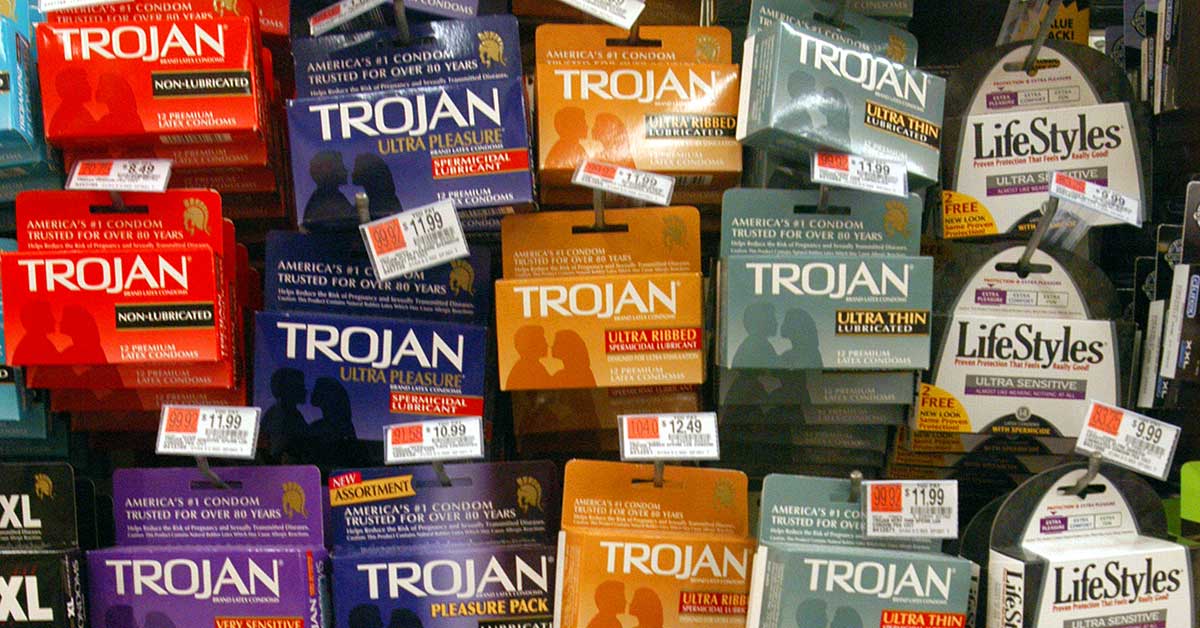Oral Sex and HIV: What Are the Risks?
Maybe. It's clear, from decades of research, that you can contract HIV through vaginal or anal sex. It's less clear, however, if you can contract HIV through oral sex.
The virus is transmitted between partners when the fluids of one person come into contact with the blood stream of another person. This contact can occur from a cut or broken skin, or through the tissues of the vagina, rectum, foreskin, or the opening of the penis.
It's possible to contract sexually transmitted infections (STIs) from oral sex — or using your mouth, lips, and tongue to stimulate your partner's genitals or anus. But it doesn't appear to be a common way to contract HIV.
Read on to find out why it's unlikely and how you can reduce your risk.
6 bodily fluids can transmit HIV
- blood
- semen
- pre-ejaculatory fluid ('pre-cum')
- breast milk
- rectal fluid
- vaginal fluid
Oral sex ranks very low on the list of ways HIV can be transmitted. It's more likely to transmit HIV through anal or vaginal sex. It's also possible to transmit the virus by sharing needles or syringes used for injecting drugs or tattooing.
However, the risk of contracting HIV through oral sex is not zero. The truth is, you can in theory still contract HIV this way. There's just been little evidence from years of research to show that it has happened.
Why is it hard to get data?It's difficult to know the absolute risk of transmitting HIV during oral sex acts. That's because many sex partners who engage in oral sex of any type also engage in vaginal or anal sex. It may be difficult to know where the transmission occurred.
Fellatio (oral-penile sex) carries some risk, but it's low.
- If you're giving a blowjob. Receptive oral sex with a male partner who has HIV is considered exceptionally low-risk. In fact, a 2002 study found that the risk for HIV transmission through receptive oral sex was statistically zero.
- If you're receiving a blowjob. Insertive oral sex is an unlikely method of transmission, too. Enzymes in the saliva neutralize many viral particles. This may be true even if the saliva contains blood.
There are no documented cases of HIV being transmitted between partners through cunnilingus (oral-vaginal sex).
Anilingus (oral-anal sex), or 'rimming,' has some risk, but it is negligible. It's especially low for receptive partners. In fact, the lifetime risk of transmitting HIV during rimming is less than one percent for mixed-status couples.
These risk factors can increase the chances for transmission of HIV:
- Status: Risk varies based on whether the person with HIV is giving or receiving oral sex. If the person with HIV is receiving oral sex, the person giving it may have a higher risk. Mouths may have more openings in the skin or lesions. Saliva, on the other hand, is not a carrier of the virus.
- Viral load: The risk of contracting HIV is higher if the person with HIV has a high viral load. Higher viral loads increase infectivity.
- Ejaculation: During oral sex, ejaculation may increase risk for sharing the virus, but ejaculation alone isn't the only possible way of contracting HIV.
- Cuts or sores: Openings in the mouth, vagina, anus, or on the penis are possible routes for HIV. These may be cuts or lesions from another infection or condition. For example, HIV-related infections like candidiasis can cause sores that compromise the integrity of the tissue in the mouth. Any break in the skin puts a person at risk for transmitting or contracting the virus.
- Menstruation: HIV-bearing cells do shed from the cervix during menstruation. Coming into contact with menstrual blood with the mouth may increase contraction risk.
- Urethritis: This condition causes inflammation and irritation in the urethra. It may increase the chances of HIV contraction, too. People with HIV are likely to shed the virus when they have this condition.
The risk of contracting or transmitting HIV through oral sex is near zero, but it's not impossible. You can take measures to reduce your risk even further.
If you are HIV-positive
An undetectable viral load makes transmission nearly impossible. Consult a doctor about antiretroviral therapy (ART). Use it as directed to reduce your viral load.
The odds of transmitting HIV when your viral load is undetectable is very low. In fact, ART reduces the risk of HIV transmission by up to 96 percent in mixed-status couples.
If you are HIV-negative
If you do not have HIV but your partner does, consider using pre-exposure prophylaxis (PrEP). This daily pill can help you prevent HIV transmission if you take it correctly and use a condom.
If you are HIV-negative and have sex not protected by condoms or other barrier methods with an HIV-positive partner or someone whose status is unknown, you can use post-exposure prophylaxis (PEP) to prevent transmission.
This medication must be taken soon after exposure, however, so it's important to see a doctor as soon as possible.
Giving and receiving oral sex
Though semen and pre-cum are not the only routes for contracting HIV, they are two avenues. Ejaculating during oral sex increases the risk. If you or your partner feels ready to ejaculate, you can remove your mouth to avoid exposure.
Barrier methods like latex or polyurethane condoms and dental dams can be used during every oral sex act. Change condoms or dental dams if you move from the vagina or penis to the anus, or vice versa.
Also use lubricants to prevent friction and tearing. Any holes in the barrier methods can increase exposure risk.
Abstain from oral sex if you have any cuts, abrasions, or sores in your mouth. Any opening in the skin is an avenue for possible viral exposure.
Be careful not to cut or tear your partner's skin with your teeth during oral sex. This opening can expose you to blood.
Other strategies
- Know your status.
- Ask your partner's status.
- Get STI tests regularly.
- Take care of your dental health.
One of the best ways to prepare yourself or your partner for sex is to disclose your status. If you don't know yours, you should be tested for both HIV and STIs.
You and your partner should also have regular tests. Empowered with your status information, you can make appropriate protection and medication choices.
Good dental health could protect you from many health issues, including HIV. Properly caring for your gums and the tissues in your mouth may prevent the risk of bleeding gums and other oral infections. This reduces the risk of contracting the virus.
-
 6 interesting genetic traits that children will inherit from their parents
6 interesting genetic traits that children will inherit from their parents
-
 7 effects of asparagus on child development
7 effects of asparagus on child development
-
 Does cutting blood hair for babies bring good luck?
Does cutting blood hair for babies bring good luck?
-
 The more babies eat, the higher the height they develop, especially the second kind
The more babies eat, the higher the height they develop, especially the second kind
-
 Children with chicken pox should eat to quickly recover from the disease, without leaving a deep scar?
Children with chicken pox should eat to quickly recover from the disease, without leaving a deep scar?
-
 The more food is cooked, the better it can be for health, especially the second type
The more food is cooked, the better it can be for health, especially the second type
-
 Blood Group Compatibility for Marriage
Blood Group Compatibility for Marriage
-
 Tongue Splitting: Procedure, Risks, Benefits, Cost, and More
Tongue Splitting: Procedure, Risks, Benefits, Cost, and More
-
 Baby Night Terrors: Signs, What to Do, Prevention, and More
Baby Night Terrors: Signs, What to Do, Prevention, and More
-
 All Babies Are Born With Blue Eyes: Fact or Fiction?
All Babies Are Born With Blue Eyes: Fact or Fiction?
-
 Pedialyte for a Hangover: Ingredients, vs. Other Drinks, and More
Pedialyte for a Hangover: Ingredients, vs. Other Drinks, and More
-
 How Old Do You Have to Be to Buy Condoms? How Do You Get Them?
How Old Do You Have to Be to Buy Condoms? How Do You Get Them?































